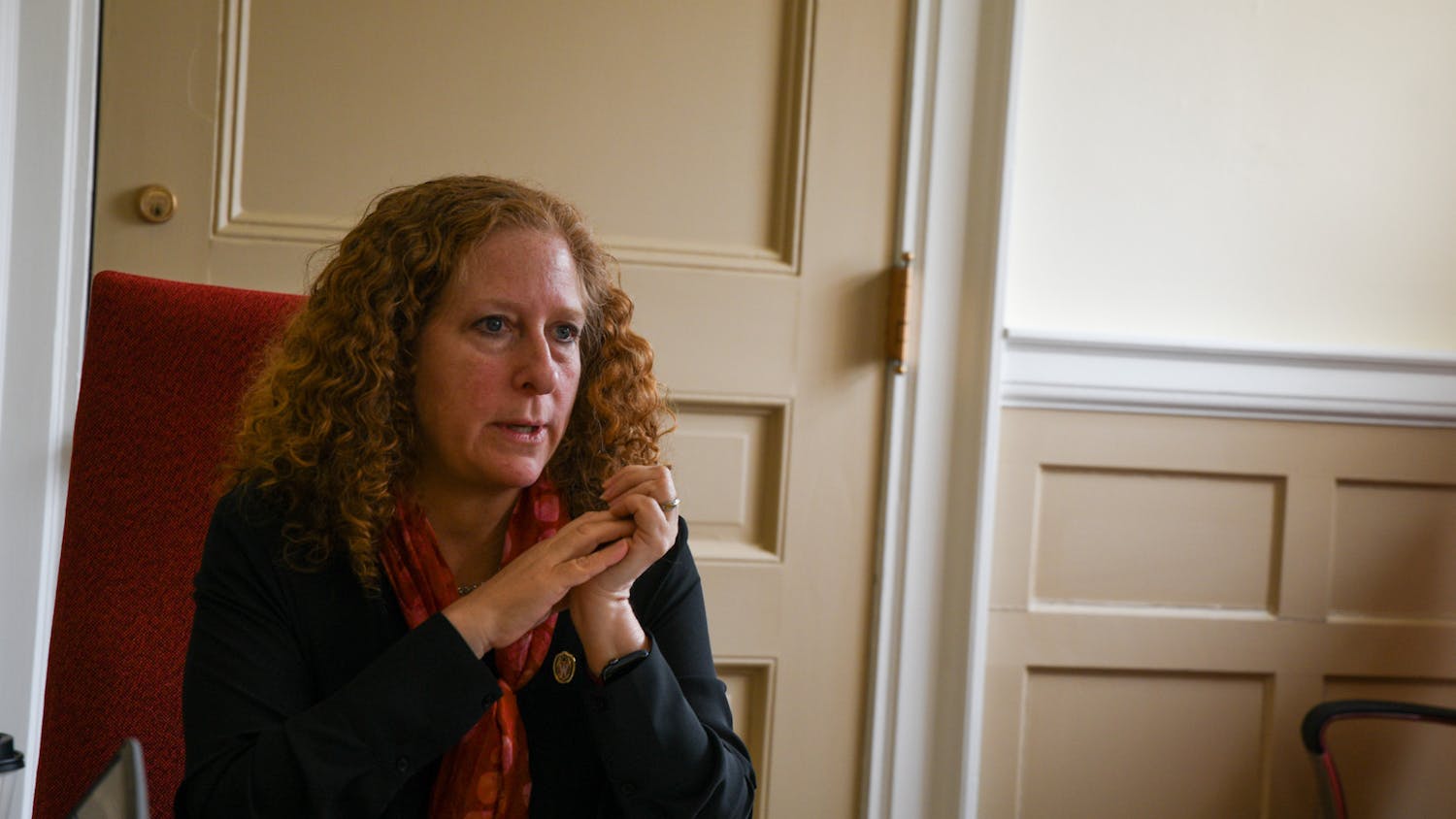Red duct tape labeled with the word “silenced” covered the mouths of three members of UW-Madison’s Student Labor Action Coalition as they lined the wall of a Labor Codes and Licensing Advisory Committee meeting Monday.
The SLAC members attended the meeting in protest of recent structural changes to the newly renamed LCLAC that they see as limiting of students’ voices.
Formerly the Labor Codes Licensing Compliance Committee, the group consists of the director of trademark licensing as well as three representatives from the student body, academic staff, faculty and classified staff.
Certain members of the LCLAC took particular concern with new bylaws approved in June 2014 requiring that the committee chair be a faculty member appointed by the chancellor, a change from the LCLCC’s tradition of electing a member from the group at large.
UW-Madison senior and member of SLAC and the LCLAC Melanie Meyer said Chancellor Rebecca Blank did not seek input from the committee before implementing the changes, which she explained have a significant impact on students’ influence on the committee.
“I really am against not only the specific changes that were made, but also the way that they were made and the motivations that I think were behind the changes,” Meyer said. “I believe that part of the reason for the changes being done over the summer and kind of in secret and the reason that we weren’t notified until after the fact is that it was known that those changes were going to be really upsetting to a lot of people.”
Speaking on behalf of the chancellor, Community Relations Director Everett Mitchell said Blank instituted the change to ensure the committee’s structure aligns with that of other advisory committees.
“The idea is to keep student voice at the vice chair level,” Mitchell said. “I think some of the frustrations that sometimes happen in this very passionate environment is just making sure that information that the chancellor receives that she can ultimately trust is giving her the most objective and reasonable perspective at that time, and so by looking at a faculty member I think she sees that as being consistent with the ability to do that.”
Mitchell also pointed to the fact that, since its inception in 1999, the committee has always been structured as an advisory committee, though it may have functioned “in the spirit of a shared governance committee.”





